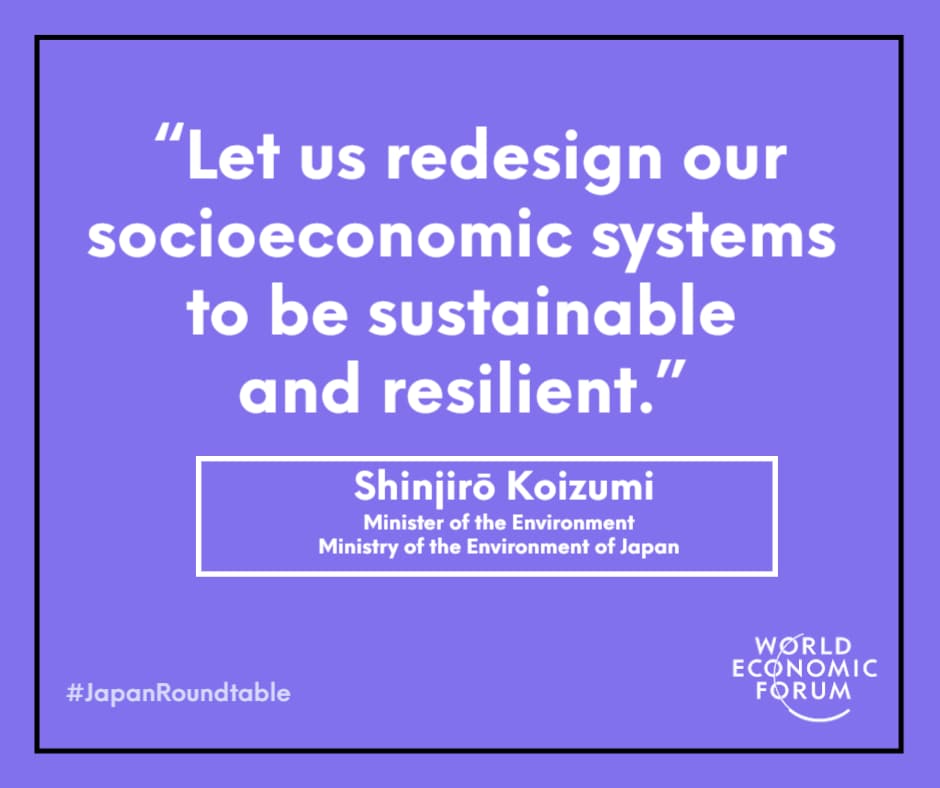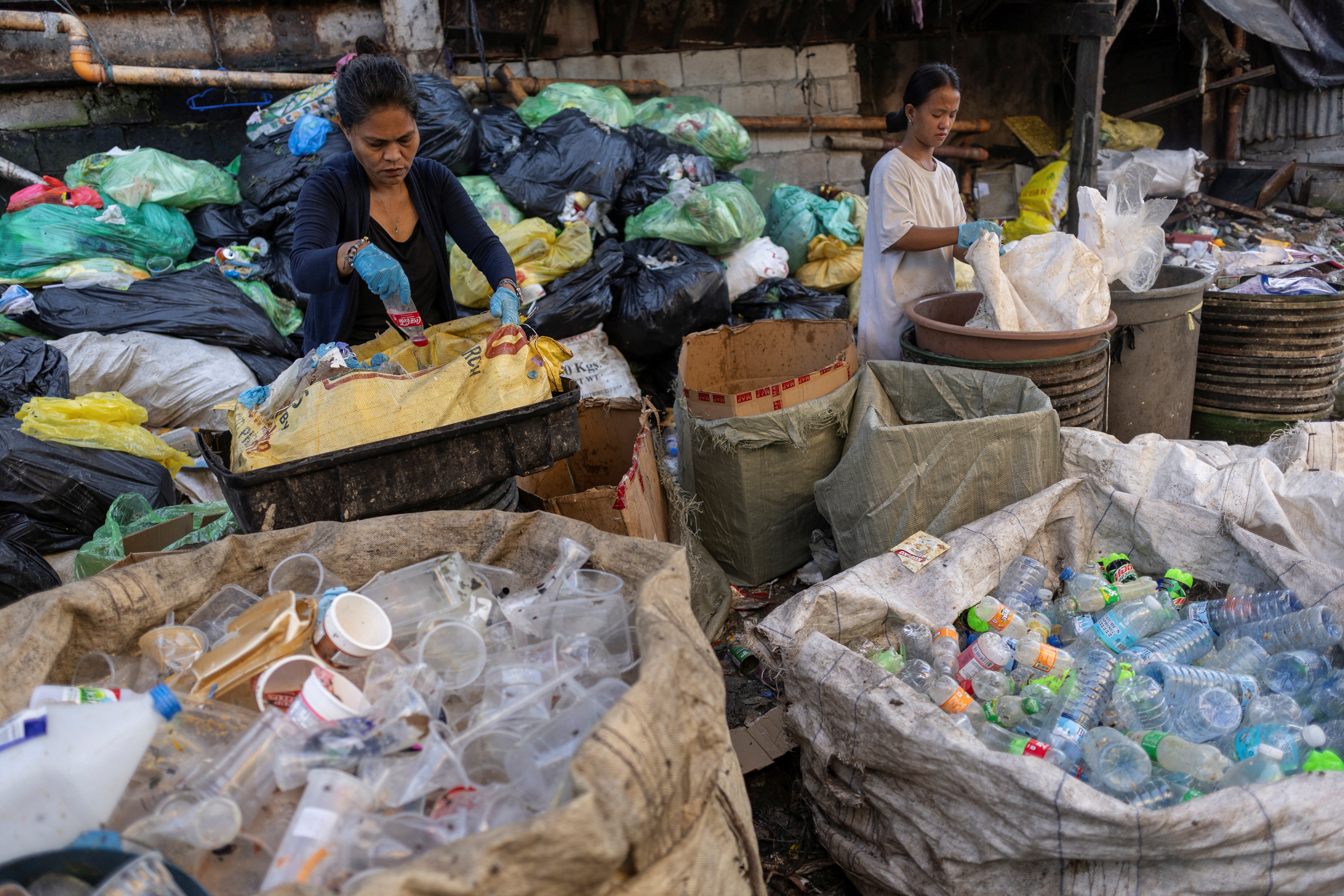How governments in Japan and the Netherlands are accelerating the circular transition
Creating a truly circular economy will take transforming existing systems. Today, two leaders shared the roles their governments are playing to trigger change at the opening session of today’s Japan Circular Economy Roundtable, hosted by the World Economic Forum.
What is the World Economic Forum doing about the circular economy?
Shaping new systems
Governments can help shape new behaviors. Such work is important, said Shinjirō Koizumi, Japan’s Minister of the Environment, as the country prioritizes decarbonization, and moves toward a world that is more circular and decentralized.
To that end, Japan has developed a range of instruments, including guidance on sustainable finance and new policies, such as a new bill aimed at advancing plastic material circulation.
Said Koizumi, “It is essential for all of us to redesign our economic systems to make them sustainable and resilient.”

Forging new collaborations
Collaboration will also be key, said Koizumi. To that end, the government announced the Partnership on Circular Economy Tuesday, a new public-private partnership intended to help aggregate best practices and identify barriers and solutions both internationally and domestically.
“Partnership between public and private sectors is absolutely necessary,” said the Japanese Minister. “I truly believe we can make a difference only when we join forces.”
The Netherlands also believes that collaboration is critical to the circular economy. Said Stientje van Veldhoven, Minister of Environment Netherlands: “Collaboration must transcend sectors and borders.”
“Action is what it’s all about. There’s no way to carbon neutrality without a circular economy.”
”Creating incentives
Governments play an important role in those collaborations by acting as facilitators, stimulating marketing and creating incentives for circularity. For instance, as a major construction client, the Dutch government can set expectations for circular practices, van Veldhoven explained. Through procurement of sustainably designed uniforms for defense workers, the government can also help promote circular principles for textiles.
Other initiatives, such as one that promotes circular office furniture, can help encourage the country’s 100,000 workplaces to reuse where possible to meet shifting demands.
Additionally, a government-wide circular economy program in the Netherlands aims to halve the use of natural resources by 2030, said the Dutch minister.
"Action is what it’s all about," said van Veldhoven. "There’s no way to carbon neutrality without a circular economy."
About the Roundtable: The Roundtable – presented in collaboration with the Ministry of Environment, Japan – was organized by the World Economic Forum’s Circular Economy Initiative. The event, held 2-3 March, featured two days of high-level discussions exploring trends, policies and leading practices to scale circular economy ambitions.
The Roundtable was kicked off by a public livestreamed session that included the following speakers: Shinjirō Koizumi, Minister of the Environment, Japan; Stientje van Veldhoven, Minister of Environment Netherlands; Børge Brende, President and CEO, World Economic Forum; Naoko Ishii, The University of Tokyo; Masayuki Waga, CEO Mitsubishi Chemical Corporation; Tsutomu Sugimori, Vice Chair Keidanren (Japan Business Federation).
Don't miss any update on this topic
Create a free account and access your personalized content collection with our latest publications and analyses.
License and Republishing
World Economic Forum articles may be republished in accordance with the Creative Commons Attribution-NonCommercial-NoDerivatives 4.0 International Public License, and in accordance with our Terms of Use.
The views expressed in this article are those of the author alone and not the World Economic Forum.
Stay up to date:
Japan
Related topics:
Forum Stories newsletter
Bringing you weekly curated insights and analysis on the global issues that matter.
More on Circular EconomySee all
Felipe Basso
November 13, 2025







